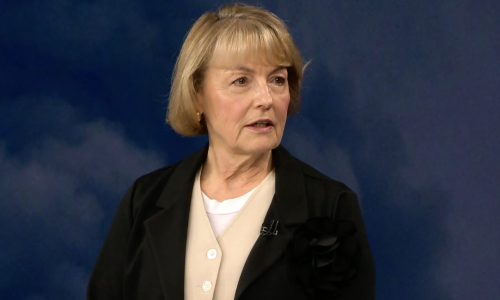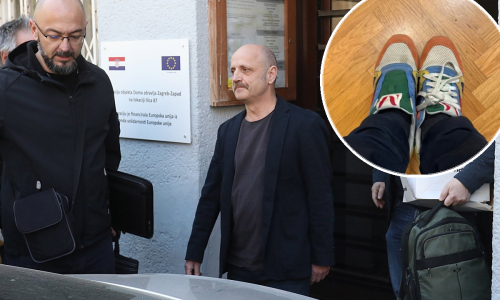The Croatian First Deputy Prime Minister and Minister of Foreign and European Affairs, Vesna Pusic, arrived in Brussels on Monday for talks with European Commission officials on the remaining tasks that Croatia needs to complete in the run-up to its accession to the European Union.
The Commission is due to release a final pre-accession monitoring report on Croatia in March.
Pusic is first scheduled to meet with the High Representative for Foreign Affairs and Security Policy, Catherine Ashton, and then with Commissioner for Inter-Institutional Relations and Administration Maros Sefcovic, Enlargement Commissioner Stefan Fuele, and Commissioner for Competition Joaquin Almunia.
Pusic has said that Croatia needs to submit a report to the European Commission by 31 January on what it has done to meet the 10 requirements that were identified in the Commission's previous report.
Since some of the EU members that have not yet ratified Croatia's accession treaty are awaiting the results of the final monitoring report, the Commission has decided to move its publication from April to March, most probably 21 March, to make it possible for those countries to complete the ratification process in time for Croatia's planned accession on 1 July.
Croatia's EU accession treaty has so far been ratified by 20 EU countries. Of the remaining seven, six have begun the ratification process and only Slovenia has not.
The treaty is yet to be ratified by the United Kingdom, Germany, France, Belgium, Denmark, the Netherlands and Slovenia. The ratification process in the UK, France and Belgium is near completion, Germany, Denmark and the Netherlands are waiting for the Commission's final monitoring report, while Slovenia is delaying the ratification, using it as a condition for the resolution of the Ljubljanska Banka issue.
In its previous report, released in October, the European Commission said that Croatia was making good progress in its preparations for membership, identifying 10 issues the country needed to address in order to be fully ready for membership.
Those issues are: signing a privatisation contract for the Brodosplit shipyard and taking the necessary decisions to find a viable solution for the 3. Maj and Brodotrogir shipyards in order to complete the restructuring of the shipbuilding industry; implementing the short term measures elaborated in September 2012 for increasing the efficiency of the judiciary and reducing the court backlog; adopting the new enforcement legislation in order to ensure the execution of court decisions and reduce the backlog of enforcement cases; establishing the Conflict of Interest Commission so that it starts working; adopting the new law on access to information in order to strengthen the legal and administrative framework in the area of access to information; completing the adoption of related by-laws to ensure the implementation of the police law; completing the construction of border crossing points at the Neum corridor; achieving the established recruitment target for border police for 2012; finalising and adopting the migration strategy with clearly defined measures for the integration of the most vulnerable groups of migrants; and increasing the capacity to translate and revise the acquis so that this task can be completed in time for accession.
Pusic said recently that Croatia has fulfilled eight requirements, four of which in their entirety, while the other four are in the final stage of adoption in Parliament. The two remaining tasks concern the shipbuilding industry, where a contract for the privatisation of the Brodosplit shipyard has been initialled, and two border crossings with Bosnia and Herzegovina at Neum, which should be finished by March.





































